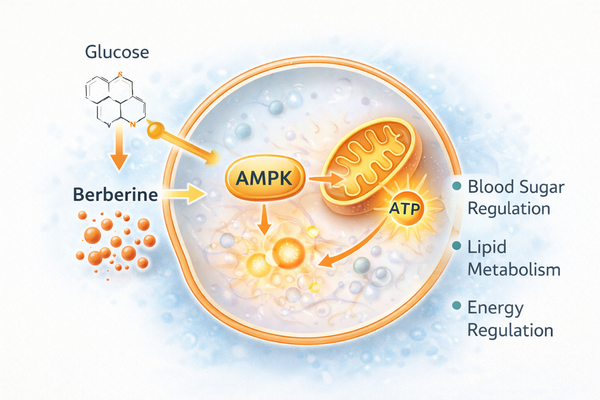The Benefits of Fermented Foods for Gut Health

Meta Description (145 characters):
Discover how fermented foods improve gut health, balance the microbiome, and boost immunity with science-backed insights and practical tips.
Introduction: Why Gut Health Matters
In recent years, gut health has become a central theme in nutrition and medical research. The human gastrointestinal tract is home to trillions of microorganisms, collectively known as the gut microbiome. These microbes play a critical role in digestion, nutrient absorption, metabolism, and even mental health. When the balance of gut bacteria is disrupted, it may lead to digestive disorders, obesity, autoimmune conditions, and mood disorders.
Fermented foods have emerged as one of the most effective natural strategies for supporting a healthy gut. Rich in probiotics, bioactive compounds, and nutrients, they not only improve digestion but also influence the immune system and brain health. This article explores the science behind fermented foods, supported by research, and provides actionable ways to include them in your diet.
What Are Fermented Foods?
Fermentation is a process where microorganisms such as bacteria, yeasts, or fungi convert carbohydrates into alcohol or organic acids. This process preserves food, enhances flavor, and increases nutrient bioavailability. Common examples include:
- Yogurt and kefir
- Sauerkraut and kimchi
- Miso and tempeh
- Kombucha and fermented pickles
These foods are rich in probiotics—live beneficial bacteria that can colonize the gut and improve microbial diversity.
The Science: How Fermented Foods Support Gut Health
1. Restoring Microbial Balance
A 2021 Stanford University study (N=36, DOI:10.1126/science.abf0621) found that participants who consumed a diet rich in fermented foods experienced increased microbial diversity and reduced inflammation. This suggests fermented foods directly modulate the microbiome, reducing the risk of chronic diseases.
2. Enhancing Digestive Function
Fermentation pre-digests certain food components, making nutrients more bioavailable. For example, fermented dairy products contain lactase-producing bacteria, which can help individuals with lactose intolerance better digest milk products.
3. Strengthening the Immune System
Approximately 70% of the immune system resides in the gut. According to Harvard Health (2023), probiotics from fermented foods may stimulate the production of protective antibodies and regulate immune responses, reducing the likelihood of infections.
4. Impact on Mental Health
Emerging research highlights the gut-brain axis, where gut bacteria influence mood and cognition. A 2020 review in Nutrients (DOI:10.3390/nu12010176) reported that fermented foods may reduce anxiety and depressive symptoms through modulation of neurotransmitters like serotonin.
Practical Ways to Add Fermented Foods to Your Diet
Start Small
Introduce fermented foods gradually, especially if you’re new to them. Begin with small servings of yogurt, sauerkraut, or kombucha to allow your gut to adapt.
Pair With Fiber
Probiotics thrive when paired with prebiotics—fibers that feed beneficial bacteria. Combining fermented foods with whole grains, legumes, or vegetables enhances their effectiveness.
Diversify Your Choices
Each fermented food provides unique bacterial strains. Rotating between yogurt, kimchi, kefir, and miso ensures a broader range of probiotics and nutrients.
Check Labels
Not all products marketed as “fermented” contain live probiotics. Look for terms like “contains live active cultures” and avoid pasteurized products that kill beneficial bacteria.
Beyond the Gut: Other Benefits of Fermented Foods
- Weight Management: Some studies suggest probiotics may influence metabolism and fat storage.
- Cardiovascular Health: Kimchi and miso contain bioactive compounds that may reduce blood pressure and cholesterol.
- Bone Health: Fermented dairy provides bioavailable calcium and vitamin K2, essential for bone density.
FAQs About Fermented Foods
Q1: How often should I eat fermented foods?
Most studies suggest daily consumption for sustained benefits. Even one to two servings per day can significantly improve microbial diversity.
Q2: Are all fermented foods probiotic?
No. Some fermented foods, like bread or beer, may not contain live probiotics after processing. Look for unpasteurized and “live culture” labels.
Q3: Can I make fermented foods at home?
Yes. Homemade yogurt, sauerkraut, or kombucha can be inexpensive and customizable. However, ensure proper hygiene to prevent contamination.
Q4: Who should be cautious with fermented foods?
People with weakened immune systems, histamine intolerance, or certain digestive disorders should consult a healthcare provider before consuming fermented foods.
Q5: Do probiotics from fermented foods survive stomach acid?
Many do, particularly strains from yogurt and kefir. Others may be partially degraded but still provide immune and metabolic benefits.
Conclusion
Fermented foods are more than just a culinary tradition—they are scientifically validated tools for improving gut health, boosting immunity, and even enhancing mental well-being. With consistent consumption, they can restore microbial balance and contribute to long-term wellness. By incorporating a variety of fermented foods into your diet alongside fiber-rich plants, you support not only your gut but your overall health.



